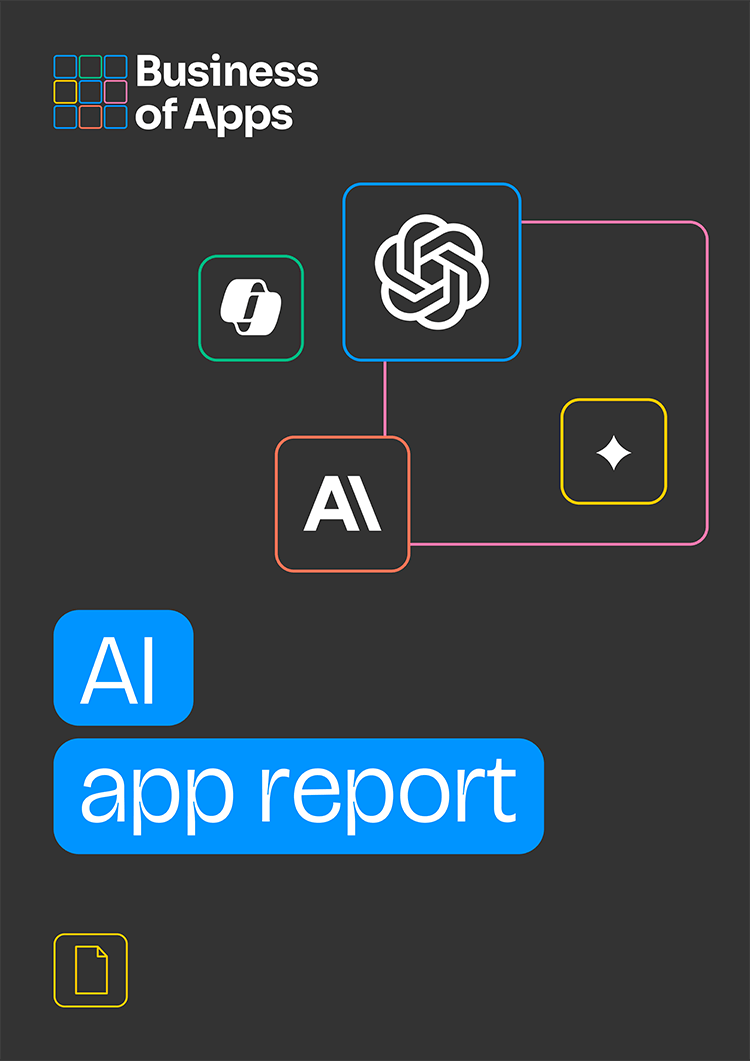Lensa AI is a photo editing app which has shot up in popularity due to the launch of its Magic Avatars, which use a generative image system to create unique digital avatars based on selfies uploaded to the app.
Users upload 10 to 20 selfies to the app and for $7.99 Lensa will create a pack of 50 images, with various art styles and backgrounds. The app also offers retouching and other editing services, with subscription fees starting at $35.99 for a year of access.
Magic Avatars have drawn in a lot of new users and in December the app reached top of the US App Store in downloads. It also generated $8.2 million in the five day period since the launch of the feature, more than it did in the previous year.
Turn installs into active and engaged customers
Grow in-app revenue and build user loyalty with custom retargeting and churn prediction campaigns from Adikteev.
Get startedGenerative systems are set to be a major app trend in 2023, with OpenAI’s DALL-E and ChatGPT both gaining millions of users within days of launching to the general public. Other systems, such as Midjourney and Stable Diffusion, have also gained a lot of buzz.
Lensa AI pulls from one of those systems, Stable Diffusion, to create its avatars. The text-to-image model is open-source, meaning Lensa is able to use it without having to pay for a license.
Not everyone is happy with the launch of the Magic Avatars. Several artists have complained on Twitter and other social platforms that the app is using stolen artwork to create the avatars, with some generated images still showing the original artists signature.
Stable Diffusion essentially scraped the web for most of the images which it fed into its text-to-image model, which included a lot of original artwork. While Stability AI and others argued that would be fine due to the not-for-profit nature of Stable Diffusion, the same ethical codes do not apply to those that utilize the framework.
On top of that, there are also worries that Lensa AI keeps hold of images saved on the app, and uses them to further train their generative system.
Lensa AI is currently on top of the AI selfie sector, but we are likely to see a lot more apps launch in the next 12 months that offer similar features. OpenAI still hasn’t debuted DALL-E on mobile, and Google’s Imagen is another contender to watch out for.
We have collected data and statistics on Lensa AI. Read on below to find out more.
Lensa AI Key Statistics
- Lensa AI has made $18 million revenue in 2023, a 58% decline on the year prior
- Lensa AI had 800,000 users in June 2023
- The app has been downloaded over 45 million times
AI App Report 2025
Want to learn more about the AI app industry? In our AI App report, we cover financials, forecasts, usage, downloads, demographics and benchmarking data.
Lensa AI Overview
| Title | Title 2 |
|---|---|
| Launch date | October 2019 |
| HQ | Sunnyvale, California |
| People | Andrey Usoltsev (CEO, co-founder), Oleg Poyaganov (co-founder, CTO) |
| Business type | Private |
| Owner | Prisma Labs |
| Industry | Photo editing |
Lensa AI Revenue
Lensa AI has made $18 million revenue in 2023. It made over 50% of its revenue in December 2022 when the app went viral.
Lensa AI revenue 2021 to 2023 ($mm)
| Year | Revenue ($mm) |
|---|---|
| 2021 | 6.5 |
| 2022 | 43 |
| 2023 | 18 |
Sources: AppMagic, Appfigures
Lensa AI Users
Lensa AI has 800,000 active users, a decline of 300,000 on 2022.
Lensa AI users 2020 to 2023 (mm)
| Year | Users (mm) |
|---|---|
| 2020 | 0.2 |
| 2021 | 0.4 |
| 2022 | 1.1 |
| 2023 | 0.8 |
Note: Estimate from downloads and rankings data
Lensa AI Downloads
Lensa AI had 8.5 million downloads in 2023, a sharp decline on 2022 figures.
Lensa AI downloads 2020 to 2023 (mm)
| Year | Downloads (mm) |
|---|---|
| 2020 | 5.1 |
| 2021 | 9.5 |
| 2022 | 24 |
| 2023 | 8.5 |
Sources: AppMagic, Appfigures
Lensa AI FAQ
Where was Lensa AI originally based?
Lensa AI was originally based in Russia, with both co-founders previously working at Russian search engine Yandex.



